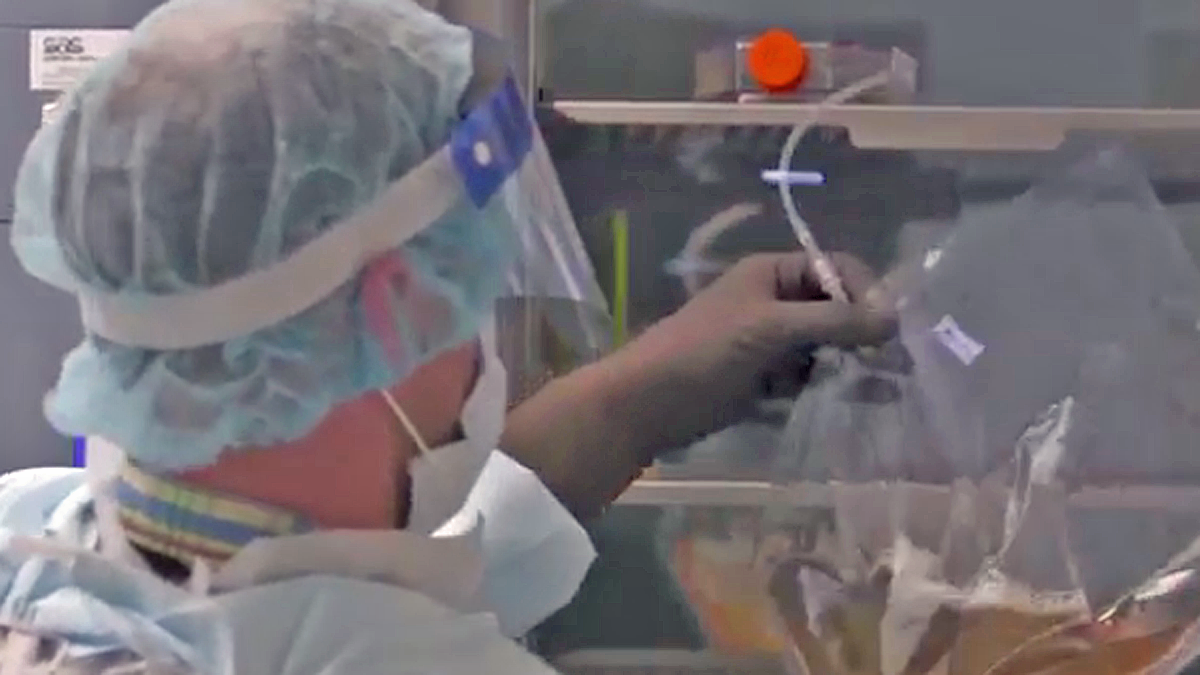Penn immunotherapy puts leukemia patients in remission for years

A researcher checks on growing T cells as part of a therapy to halt chronic lymphocytic leukemia. (Electronic image courtesy of the University of Pennsylvania)
An experimental personalized therapy for the most common form of leukemia has kept about a quarter of patients in a clinical trial cancer-free for more than a year.
The results, published in the journal Science Translational Medicine, provide an update on trials begun in chronic lymphocytic leukemia patients in 2010, and hint at the ability of the therapy to work over the long term.
“Two of our earliest patients treated have now been in remission with absolutely no signs of leukemia for over four years, and in fact hit the five-year anniversary this summer,” said David Porter, director of the blood and bone marrow transplant program at the University of Pennsylvania and lead author of the study.
Of the first 14 patients to receive the treatment, four went into complete remission and another four saw some improvement. Those outcomes are all the more remarkable, Porter said, because all had advanced cancers.
“The patients in this trial have largely failed all other conventional therapies and really had really, very few treatment options,” he said. “Nothing was really working for them.”
The therapy is not without risks. T cells are taken from patients’ bodies, then genetically modified in the lab to be able to target and kill B cells. That can eliminate the cancer, but also knocks out the arm of the immune system that makes antibodies. One patient in the trial died from an infection, although Porter said it’s not clear if B cells would have necessarily helped.
Another concern is the violent reaction many people have when injected with the re-engineered T cells. They trigger a storm of immune proteins that can land patients in the ICU with severe flulike symptoms, Porter said, but that isn’t entirely bad.
“It is a little bit of a two-edged sword that most patients who have responded have also had this type of side effect,” he said.
Most promising, Porter said, is the fact that in the patients who responded, the modified T cells are still detectable and functional years after treatment.
“We can’t predict the future and we don’t know what’s going to happen,” he said, “but I think there’s reason to be optimistic that their leukemia is not going to come back.”
The research team wants to better understand why only certain patients respond, and aims to be able to identify good candidates as well as to learn how to make the immunotherapy work in more cases.
The technology is licensed to Novartis, and it received the FDA’s “breakthrough” designation last summer. It’s also being used experimentally to treat acute lymphoblastic leukemia, or ALL, often with even more success.
Porter said the team is currently investigating the best dose to use and will move into phase two clinical trials within the next few months.
WHYY is your source for fact-based, in-depth journalism and information. As a nonprofit organization, we rely on financial support from readers like you. Please give today.

